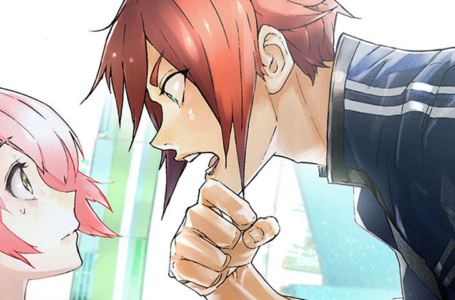Stop being an asshole to translators
There’s something that, I think, needs to be said. It may not win us friends from certain portions of the community — but to be honest, given some of the behaviour I’ve seen recently I’m not sure I’d want us to be friends with that portion of the community, anyway. As such, I’m going to say it anyway. That thing I want to say is quite simply this: stop being an asshole to the people who allow you to enjoy your favourite forms of entertainment. Specifically, translators and localisers.
I bring up this topic owing to some recent controversy over the recently released visual novel Cyanotype Daydream, which has been localised not in the 18+ format it was originally released in out east, but in all-ages form. This is, in itself, not anything particularly unusual in the visual novel industry. Many visual novels already release both 18+ and all-ages variants in order to cater to different audiences — often to allow the work to be released on consoles in edited format as well as on PC in 18+ (albeit mosaiced in Japan) format — and many visual novels have only been localised in all-ages format.
The interesting thing here is that the original Japanese developer Laplacian went a bit further than usual in this instance: not only did they decide that the localised version of Cyanotype Daydream should only be released in all-ages format, they actually also decided that, from this point on, they only wanted to work on all-ages titles.
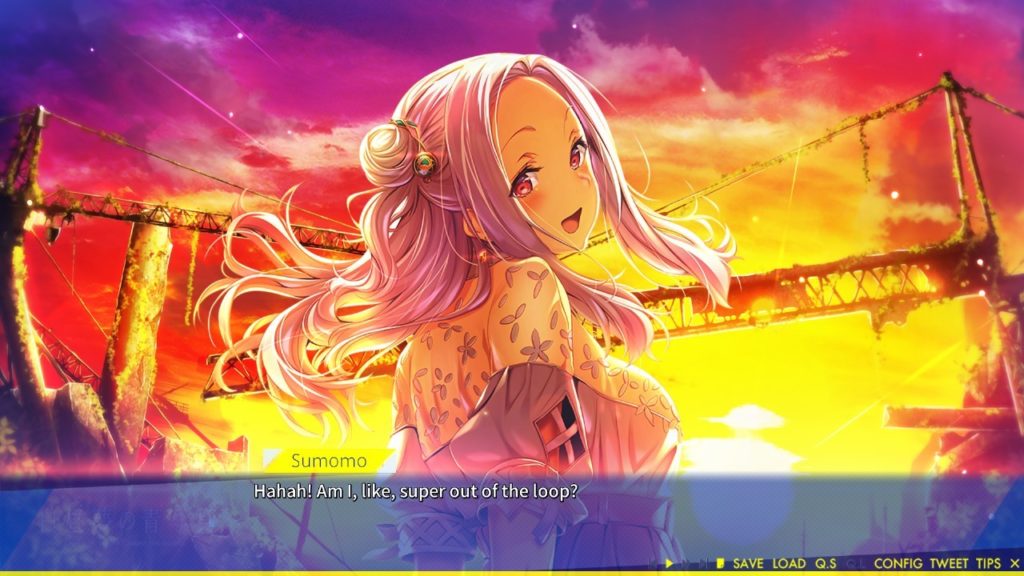
In a lengthy blog post explaining the Steam release, writer Ono Wasabi addressed the audience’s concerns over the game’s new rating and the changes made to a character’s outfit and age.
“What I want to stress,” they say, “is that although certain depictions have been cut, the essence of the story remains the same. Furthermore, the amount of additional new content far exceeds what was cut. I, Ono Wasabi, am solely responsible for the plot and the writing of Cyanotype Daydream. From the outset, I designed the story with the possibility of an all-ages version in mind, and as such I wrote it in a way that any cuts made to align with this new rating would not affect the overall narrative experience.”
Wasabi followed this up with a post via Laplacian’s English Twitter account, in which they shared some of the new non-18+ CGs and noted “although we have made Laplacian an ‘all ages brand’, that doesn’t mean we want to remove references to sex entirely, so this is how we’ve gone about it in Cyanotype Daydream. For those of you who think this is even lewder, I salute you. Whatever the case, in both CyanDream and future works, I want to explore different ways of expressing the scenes the story calls for.” All told, there are apparently six images that have been replaced.
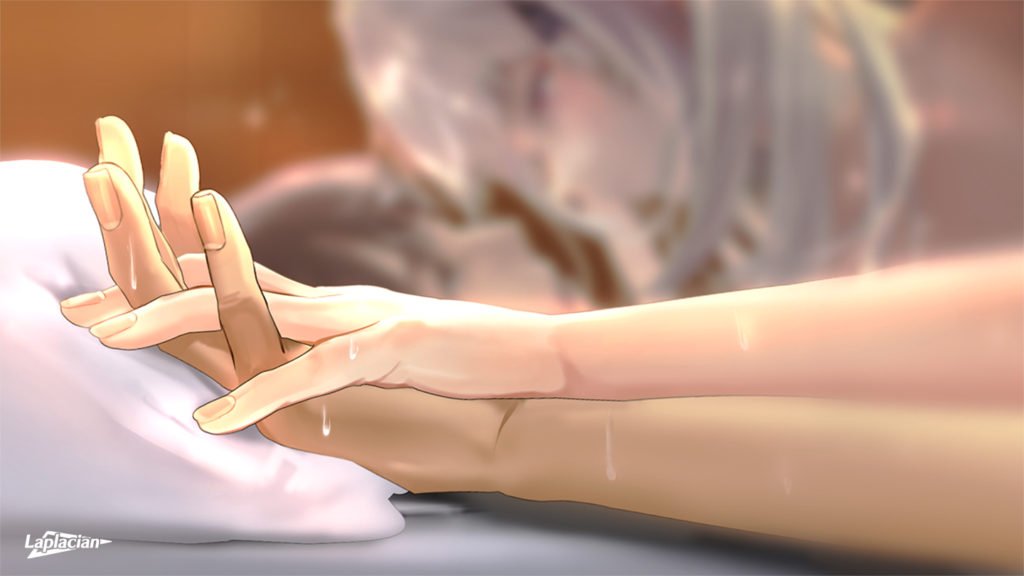
Addressing the change to the character Rin’s outfit and age, Wasabi noted that “the purpose of this change was to make certain the game would pass Steam’s review. However, we ultimately only proceeded with this change because we were certain it wouldn’t affect the story.
“As I’m sure some of you are aware,” Wasabi continued, “if Steam decides that your game contains ‘sexual exploitation’ of minor characters, you do not get a second chance to submit your game. Currently, there are no other sales platforms that rival the scale of Steam and its user base.
“Of course, I understand that a character’s age and clothing style can greatly affect the mood of a story,” Wasabi added. “I think I can say that I have a deeper and more thorough understanding of my own story than anyone else. Still, we made these changes because we ultimately decided that they would not affect the overall story.”
Wasabi goes on to explain that the character’s use of a school uniform was originally primarily intended as a piece of fanservice for longstanding Laplacian fans, since it features the same design as in the company’s first work. He also urges fans to not rely on “surface-level characterisation” and that “placing excessive weight on this specific aspect shows a lack of understanding of the true appeal of Cyanotype Daydream. It is not our goal to try to convert those people.”
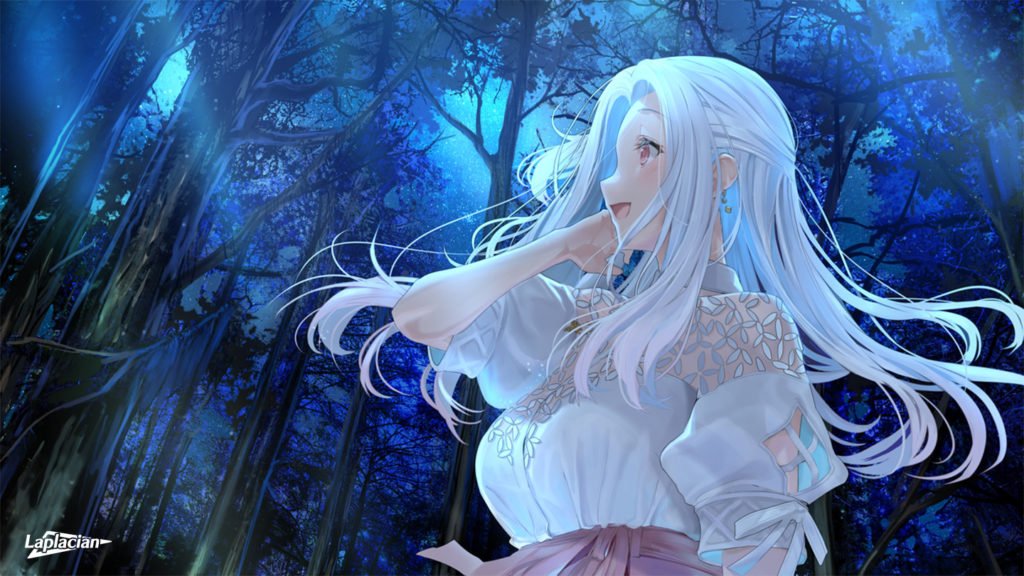
That sounds like a pretty clear statement of authorial intent — right from the mouth of the author, no less. And yet, that hasn’t stopped the more toxic end of the western visual novel community from harassing members of the team who localised the game, believing them to be the ones behind its “censorship” — when in fact they were complying with the author’s wishes for the game’s western release.
The sad thing is, though, this isn’t an irregular occurrence at all in the world of localised games. On a seemingly daily basis, people who localise Japanese media — be it manga, anime or video games — are harassed by a small but very loud minority of individuals online, and, to be quite frank, it concerns me for the future of our favourite hobbies.
Because I think we’re fast approaching a point where talented localisers simply won’t want to engage with the broader community… and, in the worst case scenario, Japanese creators won’t want to localise their work at all. Why would they, when their hard work on bringing something as linguistically complex as a visual novel to the west in collaboration with localisers is met not with appreciation, but with unjustified scorn based on, as Wasabi says, “surface-level characterisation” and a “lack of understanding of [a work’s] true appeal”?

In some instances, there are justifiable criticisms to be made — there are absolutely cases where content has ended up having to be edited against the developer, localiser and publisher’s wishes. Pretty much every visual novel publisher has run afoul of Steam’s aforementioned blanket ban on the “sexual exploitation of minors” at one point or another, even where the game in question features no explicit sexual scenes at all, and I’m sure I don’t have to tell you how in more recent years Sony has completely squandered all the goodwill it attained with fans of anime-style games during the age of the Vita.
But for some people out there, it appears that any form of localisation is an act of complete sacrilege against the original work; that anything other than a strict, literal, word-for-word translation is somehow disrespectful to the original author, and that this justifies abuse and harassment hurled at localisation staff.
For one thing, a literal word-for-word translation often reads in an incredibly stilted, unnatural manner — but for another, a literal word-for-word translation has never been the role of a translator, either in the world of video games or in the wider world of culture in general.
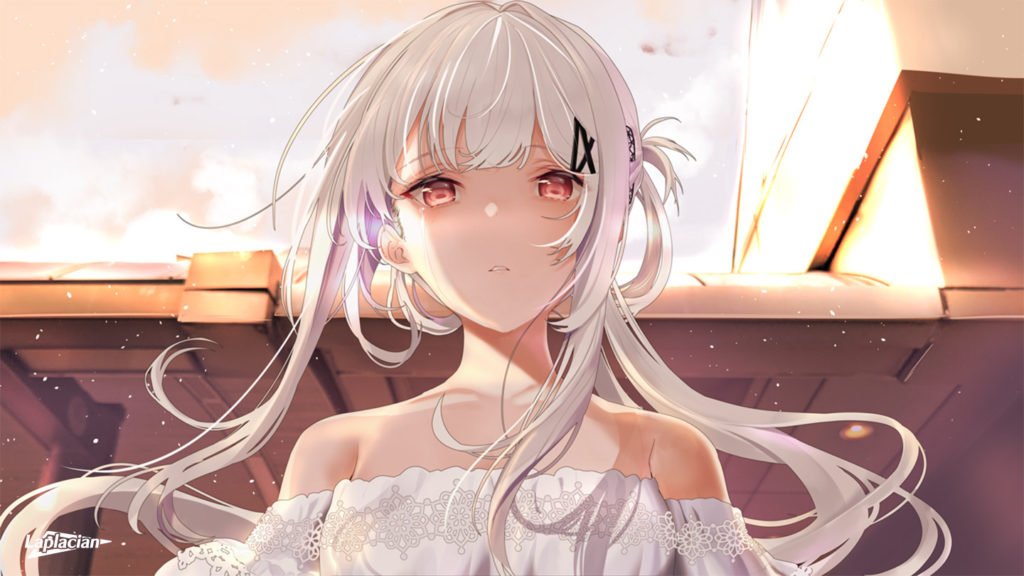
“The stereotype is that translation is just the mechanic act of transforming text A into text B as we would do with a mathematical equation,” wrote professional translator Chiara Grassilli back in 2013. “This is called literal translation, or word-for-word translation. Let’s break the stereotypes and say: if you are a translator and you think the same about your work, you’re confusing yourself with Google Translate. This tool tries to recognise the function of each word according to its position in the sentence, giving you a potential translation.
“But what about those languages in which the word order is not fixed, thus allowing me to write the same sentence in dozens of ways?” Grassilli continues. “A computer program is not sensitive. It can easily misunderstand the meaning. And, above all, it’s not able to write.
“Translators have many elements to work with to tune the text,” Grassilli explains. “Word order, text and sentence structure, and a wide range of terms. We play with words as a painter plays with colours. That’s why I really believe we not only translate the meaning of texts, but we build a scenario: we translate, transform and re-write. We have to convey the original meaning, but we are also able to shape it until we create a text with its own identity. Thus, in doing so we are not only translators, but writers too.”
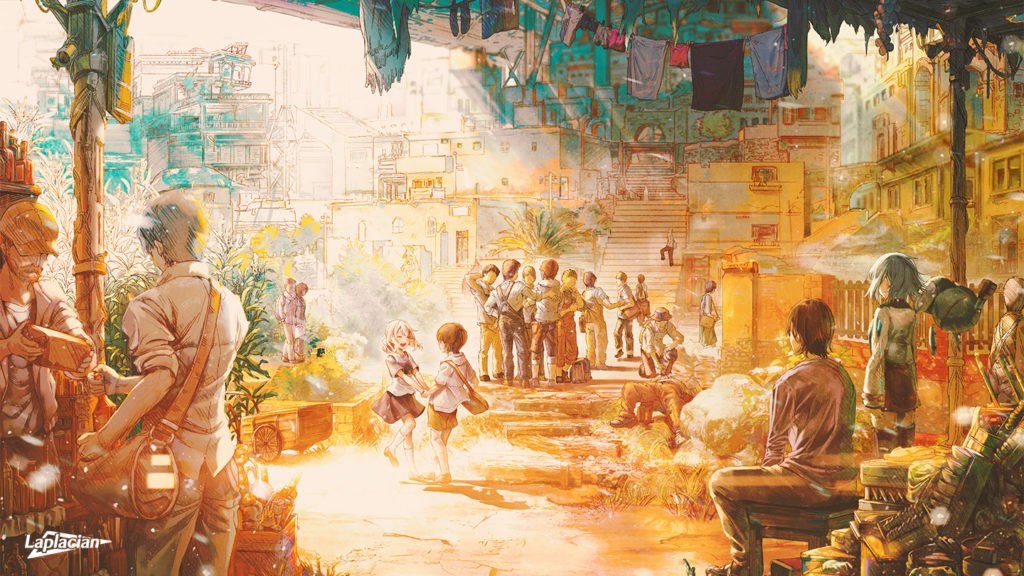
The question of whether or not a translator is actually a writer has been pondered many times over the years by a wide variety of translators, writers and people who have worked in both positions simultaneously. And the most common conclusion seems to be that yes, in order to be good at their job, a translator absolutely has to also be a good writer.
“Translations create equivalent meaning from one language to the next on a variety of levels,” explains Jenn O’Donnell from J-EN Translations in a lengthy Twitter thread from 2020. “[These levels] include ‘word level’, ‘sentence level’, ‘meaning level’, ’emotive level’, ‘cultural level’ and so on. And the combined use of these can vary depending on the text and intent.
“A direct lexical (word) equivalence for ただいま (tadaima) could be ‘right now’,” she continues, “but that loses the intent of the phrase which is ‘I have returned right now’. But in English it’s strange to say ‘I have returned’ (unless you’re writing period text) so this is often translated to ‘I’m home’.
“Translators are writers,” O’Donnell adds. “They are creative writers, technical writers, legal writers, medical writers. They transform words and meanings from one language to another in the best way possible based on the purpose of a text. But translators are human, which means interpretations can vary depending on socio-cultural backgrounds, errors can occur (that’s why we have editors and checkers) and why we are constantly learning and improving.
“Translation, no matter the language or field, isn’t easy,” she concludes. “It’s a highly skilled and important craft that allows for the spread of information and entertainment across the globe. Which I really hope people remember when they’re consuming translated work.”
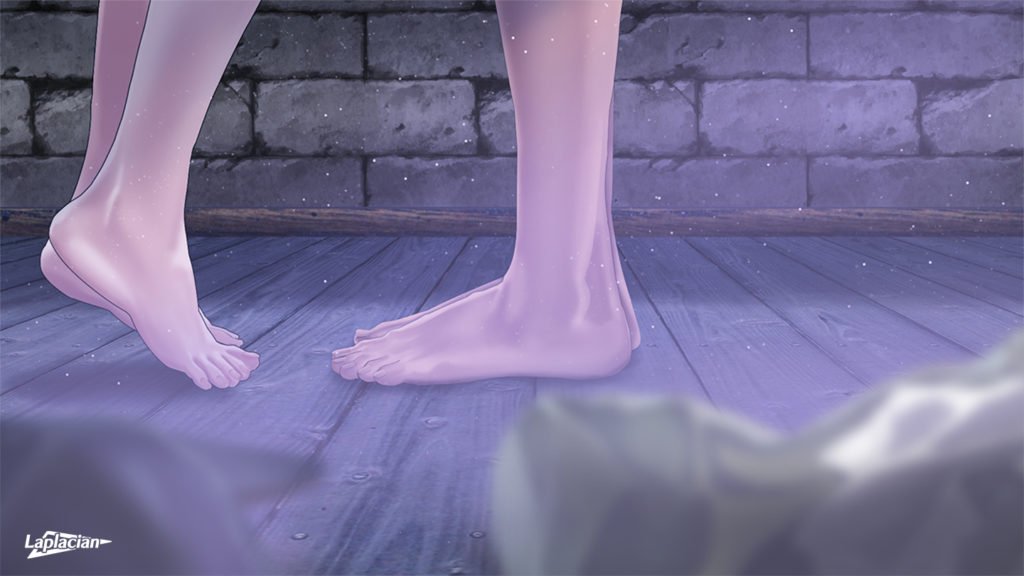
It is important to remember that a translated work is not the original work, however “true” you might consider the translation to be. It is its own distinct product. But that fact does not make the translated work inferior to the original. In some cases, it even makes it better — an excellent example is Final Fantasy XIV, whose English localisation was so well-received a lot of its core concepts, ideas and overall sense of tone ended up being backported into the Japanese script.
With that in mind, the only true way to experience “the original work” is to enjoy it in its original language. If you’re not capable of doing that, you have three real options: you can learn the language skills you need to enjoy it in its original language; you can enjoy a translated version (be that a commercial or fan translation) — or you can simply not engage with the work at all. Heaven knows there’s so much “stuff” in the world today that it’s already impossible to engage with everything natively written in our own language, let alone works from other cultures, so it’s genuinely worth asking yourself if you need to play every game, read every visual novel.
I think, if nothing else, an important thing to take away from all this is that all of you reading this are here because of translation. All of you reading this are here not just because you enjoy Japanese popular entertainment — but because at one point or another, you have enjoyed translated Japanese popular entertainment. You have been the beneficiary of translators’ work on spreading information and entertainment across the globe.
I would like to hope that all of you reading this are not out there harassing translators and localisers for doing their job — particularly when the things they do are the express wishes of the original creator.
And if you are, I would very sincerely encourage you to stop being such an asshole, and just get on with enjoying the amazing work these people do in bringing us our favourite pieces of entertainment in a form we can understand and appreciate. Given the choice between being Mad Online and enjoying cool new games and visual novels, I know which I’d choose.
Screenshots from Cyanotype Daydream, available now on Steam.
Join The Discussion
Rice Digital Discord
Rice Digital Twitter
Rice Digital Facebook
Or write us a letter for the Rice Digital Friday Letters Page by clicking here!
Disclosure: Some links in this article may be affiliate links, which means we may earn a small commission if you make a purchase after clicking on them. This is at no additional cost to you and helps support Rice Digital!
- Letter from the Editor: passing the torch - June 30, 2023
- Super Woden GP 2 is looking promising - June 30, 2023
- Inti Creates is making a 32 bit-style Love Live action platformer - June 26, 2023




